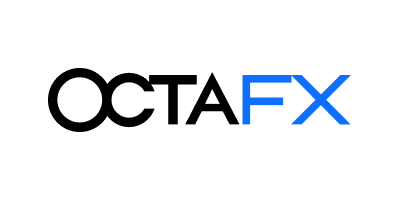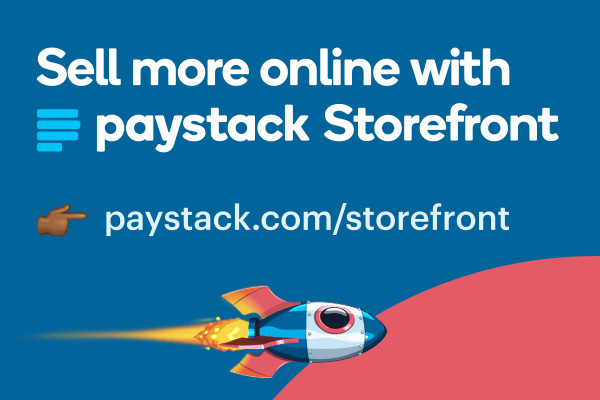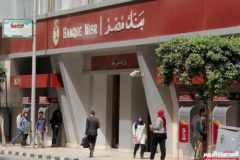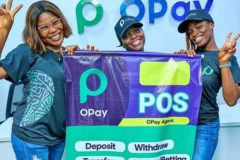
IN PARTNERSHIP WITH



Good morning ☀️ ️
First, some housekeeping. If for some reason you don’t see TC Daily in your inbox in the morning, it’s most likely fallen through the cracks and landed in your promotions, spam or junk folder.
Please help move us back into your inbox when this happens.🙏
In today’s edition:
- Ask an Investor: Ato Bentsi-Enchill
- Follow the money
- Platform Capital’s Africa Walk: Changing the misconceptions about Africa
- Why is the CBN banning Forex sales to BDC in Nigeria?
- Ivory Coast-based fintech startup Julaya raises $2m
Ato Bentsi-Enchill is helping African startups raise money and protecting them from difficult investors

“Sometimes potential clients look at my background and are skeptical but I tell them results don’t lie. I’ve done some solid work with my clients, and they are some of my biggest cheerleaders.”
To understand how Ato Bentsi-Enchill started investing in startups, let’s rewind to 2014.
He was a first-year liberal art major at Hobart and William Smith Colleges who won the school’s flagship business plan competition.
Later on his grandfather’s company, Black Adam Distilleries, would inspire his current company’s name: Black Adam Africa Capital Management, a boutique investment firm specialising in private equity, investment advisory and project financing.
Today, alongside his investment firm, Bentsi-Enchill invests in startups personally and through syndicates like Future Africa and Rally Cap. He’s also a Venture Scout for Microtraction.
With a background in Liberal arts, how did he learn all this?
“In the early days, when people asked me to do valuation reports, I got initial guidance on YouTube, read as many books as I could on the topic and spoke to people in my network. It’s been more of self-education, and I believe that works best for me, although an MBA will be necessary for the future.”
How did he get his big break?
After conducting a due diligence that led a fintech company to raise $3m, he proposed helping the company raise more money.
“Initially, the founder was hesitant as many folks had approached him with similar propositions, proposing hefty retainers while not doing the work. I was very convinced that this founder will be successful and told him to forget the retainer; I was ready to work with no payment upfront. Thankfully within a year and a half, we raised $7.5 million (up to $15 million now).”
In this edition of Ask an Investor, I spoke to Ato Bentsi-Enchill who shared his journey as an investor and advice to folks who are interested in investing in African startups with as low as $1k.
Increase your online sales with a Paystack Storefront – a free, beautiful seller page that helps you bring creative ideas to life.
Follow the Money
$81 billion: Apple made $81 billion in revenue in its last quarter. iPhone sales hit $40 billion increasing nearly 50% on an annual basis. Every one of Apple’s major product lines grew over 12% on an annual basis.
$61.88 billion: Alphabet (Google’s parent company) reported $61.88 billion in revenue last quarter. Total Google ad revenue increased to $50.44 billion, up 69% from the year-ago quarter. YouTube revenue was over $7 billion, up 83% from last year, drawing close to Netflix’s quarterly revenue, which was $7.34 billion.
$46.15 billion: Microsoft posted $46.15 billion in revenue from its last quarter. The major driver? Azure, Microsoft’s cloud computing platform, posted 51% revenue growth or 45% if you adjust for currency fluctuation.
$33.5 billion: Pfizer now expects its Covid-19 vaccine to bring in $33.5 billion in revenue this year, putting it on course to become one of the best-selling medicines of all time. It believes people will need a third dose of the vaccine developed with German partner BioNTech to keep protection against the virus high.
$1 billion: Tesla, Elon Musk’s electric vehicle company, beat expectations on both the top and bottom lines, and passed $1 billion in quarterly net income for the first time. But, the company reported a $23 million impairment (loss) related to bitcoin, courtesy of the dip.
How would you like to go on a financial ride with your favourite celebrity?
OctaFX is making that happen with engaging forex courses taken by your most-loved lifestyle and entertainment personalities. And it all leads to one place: mastery of forex trading and financial freedom.
Start the journey here.
Platform Capital’s Africa Walk: Changing the misconceptions about Africa
Like most developing regions across the world, Africa suffers from bad publicity.
While coverage by Western media is often focused on issues of insecurity, conflicts, political unrest, and corruption on the continent, Africa is bustling with business opportunities across sectors – especially its burgeoning technology ecosystem – for interested foreign investors.
To seize these opportunities, curious investors will have to look beyond prevalent misconceptions and make a deliberate effort to understand the business landscape in Africa.
What’s happening?
Lagos-based Platform Capital is a leading investment and advisory firm serving global clients. The company organised Africa Walk, a first-of-its-kind event bringing together foreign investors and portfolio companies to Africa for the first time.
By asking these stakeholders to experience the continent for themselves, Platform Capital aimed to give them a better understanding of Africa, its business and investment landscape as well as opportunities, beyond what they hear on the news.
Michael, who was at the session, writes about how Platform Capital’s Africa Walk is changing the misconception about Africa.
Why is the CBN banning forex sales to BDCs in Nigeria?
Every other month, something new is banned in Nigeria.
This month was looking like it was going to be quiet until Nigeria’s Central Bank showed up after its long hiatus since February when it banned cryptocurrency trading.
What’s happening?
Nigeria’s Central Bank (CBN) has stopped the sale of foreign exchange (FX) to Bureau De Change (BDC) operators in the country. The registration of new players has also been halted, with immediate effect.
Why is Nigeria halting the sale of forex?
BDCs were set up to receive a weekly supply of FX from the CBN for onward sale to retail end-users, that is, people who needed $5,000 dollars or less.
However, the CBN Governor Emefiele said the monetary policy committee (MPC) noted that the money changers had become wholesale dealers and illegally traded FX to the tune of millions of dollars per transaction.
In his words: “They have turned themselves away from their objectives. They are now agents that facilitate graft and corruption in the country. We cannot continue with the bad practices that are happening at the BDC market.”
Zoom out: As commercial banks settle to adjust to the CBN directive, the ban is likely to put more pressure on the Nigerian naira in the parallel/black market – where forex is traded unofficially – in the immediate term.
Field Force Automation (FFA) is essentially using technology solutions and platforms to automate the routines of the field team to ensure optimum engagement. A great example of this is FieldMaxPro, a digital field force management automation solution developed by Papyrus Digital Solutions Ltd. Read more details here about how FieldMaxPro is helping organizations maximize full potential.
Ivory Coast-based fintech startup Julaya raises $2m

Ivory Coast-based fintech startup Julaya, has raised $2 million in pre-Series A funding to grow and expand its product in West Africa.
The startup provides businesses and institutions with an online platform to disburse payments to mobile money and mobile banking wallets instead of relying on cash.
Founded in 2018 by Mathias Léopoldie and Charles Talbot, Julaya says it’s currently processing over $1.5 million monthly for 50 of its customers which ranges from SMBs to large corporates and government institutions and includes brands such as the e-commerce company Jumia.
Big picture: In Ivory Coast, one of Francophone Africa’s largest mobile money markets, 75% of the population own a mobile money account, compared to 20% who own bank accounts. Julaya is looking to take advantage of this to connect businesses to the unbanked and expand across West Africa.
Read more: Ivorian fintech Julaya raises $2M to digitize business payments in Francophone Africa




























